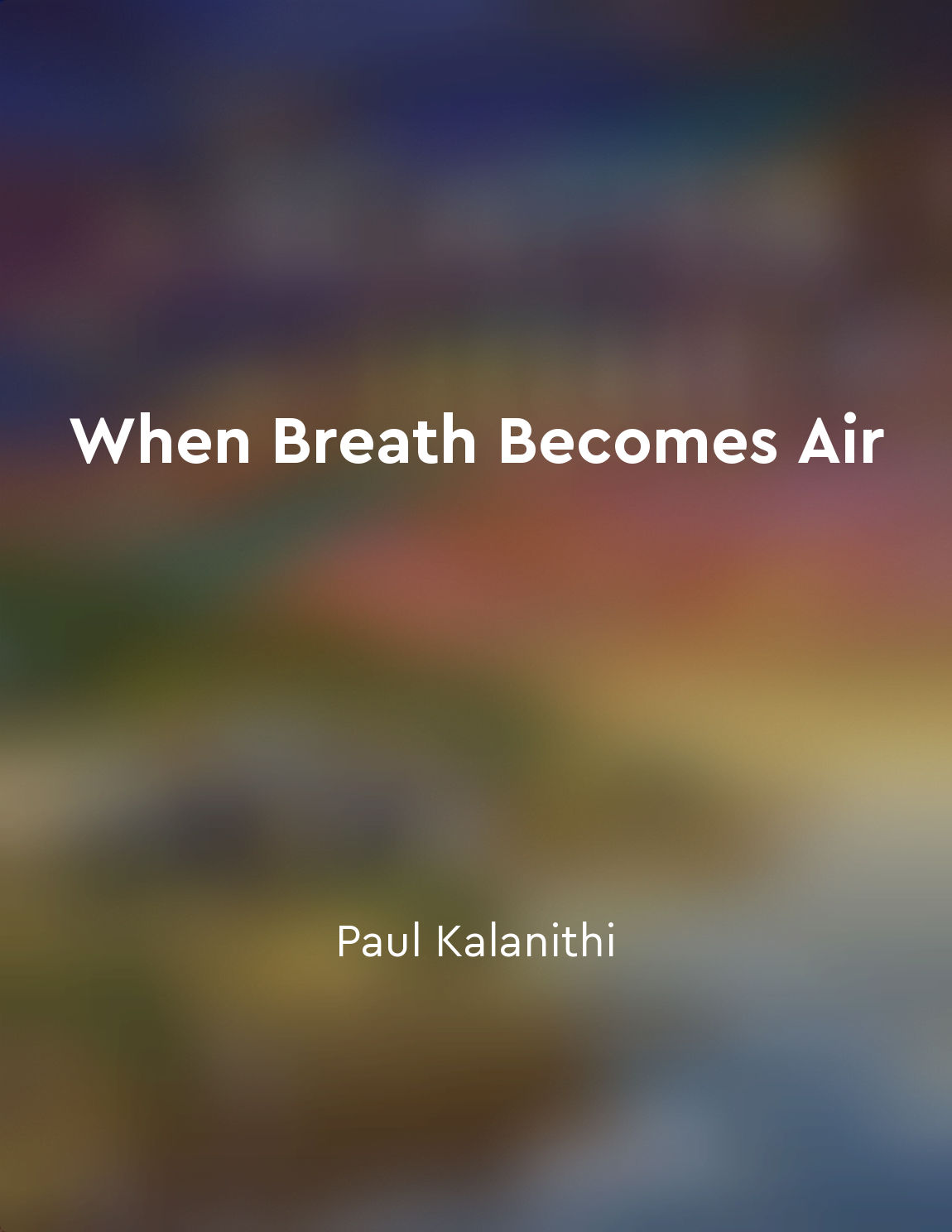Death is not always a sudden event from "summary" of How We Die by Sherwin B Nuland
In the vast majority of cases, the final event in the human life cycle is not a sudden one. Death usually comes after a period of decline and deterioration, as the body gradually loses its ability to maintain life. This process can unfold over weeks, months, or even years, depending on the underlying cause of death. For many individuals, the final stages of life are marked by a gradual loss of physical and mental capabilities. Activities that were once taken for granted become increasingly difficult, and the individual may require assistance with even the most basic tasks. This decline can be emotionally challenging for both the dying person and their loved ones, as they come to terms with the inevitability of death. As the body continues to weaken, the dying person may experience a range of symptoms, including pain, fatigue, and shortness of breath. These physical symptoms can be managed to some extent through medical interventions, but they are often a sign that the end of life is approaching. In some cases, the dying person may also experience changes in consciousness, such as confusion or hallucinations, as their brain function begins to decline. In the final days and hours of life, the body's systems begin to shut down. The heart may beat irregularly, breathing may become shallow and labored, and consciousness may wane. This stage of dying is often accompanied by a sense of calm and acceptance, as the individual's focus shifts from the physical world to the spiritual or emotional realm.- Death is a natural part of the human experience, and the process of dying is as unique as the individual who is experiencing it. By understanding that death is not always a sudden event, we can better prepare ourselves and our loved ones for the inevitable end of life.
Similar Posts

Conversations with loved ones can be transformative
The idea that conversations with loved ones can be transformative is a central theme in 'Tuesdays with Morrie Teacher Guide'. T...
Cultural beliefs influence how people perceive death
Cultural beliefs have a profound impact on our perception of death. Throughout history, different societies have developed thei...
The legacy we leave behind can shape how we are remembered after death
In the final analysis, what happens to the bodies we leave behind is of far less importance than what we have done with our liv...
Religious practices provide comfort and guidance in facing death
In the face of death, many turn to their religious beliefs for solace and direction. The rituals and traditions of various fait...
Exploring one's mortality can be liberating
Contemplating the inevitability of death can be a powerful tool for liberation. When we confront our mortality head-on, it can ...
Death is a natural part of life
Bernd Heinrich delves into the profound and often unsettling concept of death as an integral component of the cycle of life. He...
Society's views on death shape our perspectives
Our society has a profound influence on how we perceive and understand death. The way in which death is portrayed and discussed...

Communication is key in healthcare
In medicine, the art of communication is often overlooked. It is easy to focus solely on the technical aspects of healthcare, f...

